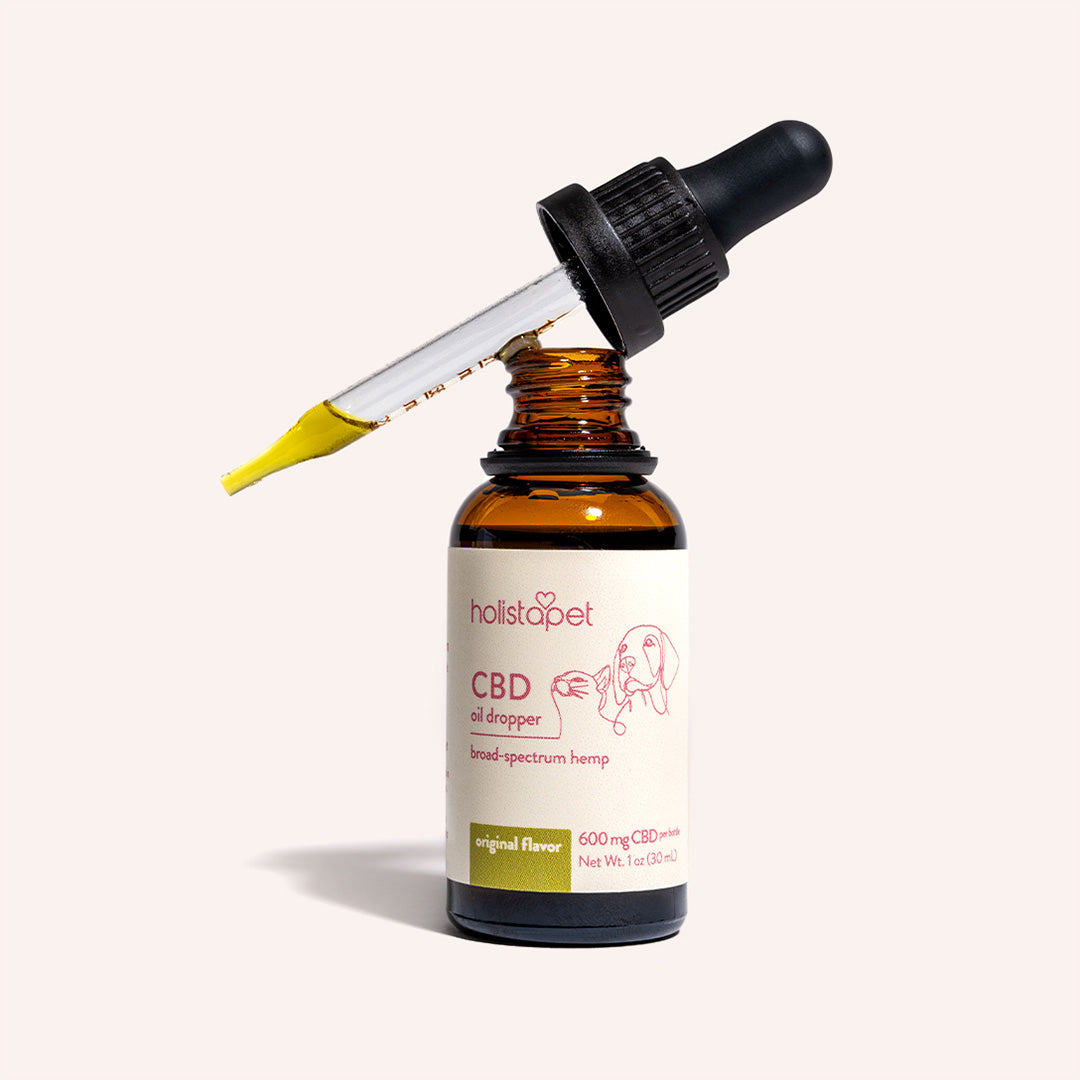Dog allergies can manifest in various ways, such as itchy skin, skin infections, ear infections, hair loss, and other symptoms. Food allergies may affect the skin, as well as cause excess gas, stomach upset, and loose stool. A dog's environment can also play a big part in their development of allergies. It is pretty common for dogs to develop some kind of allergies and for owners to want to know what to give dogs for allergies.
Read more to find the potential causes of your dog's allergies and various ways to quickly ease their symptoms!
Can Dogs Have Allergies?
Yes, dogs can have allergies, regardless of their backgrounds and breeds. More often than not, their allergy symptoms appear when they reach six months to two years of age. Many dogs also develop allergies when they are already more than two years old.
Certain allergies are believed to be inherited. These allergies are atopic and are linked to plants and pollens. Canine atopic dermatitis, for instance, is an inherited predisposition to have allergic symptoms after being exposed to allergens.
Many dogs start to have symptoms when they reach one to three years of age. Because this disease is hereditary, certain breeds, such as Golden Retrievers, Irish Setters, Old English Sheep Dogs, Bulldogs, Lhasa Apsos, and terriers, are more more prone to atopic allergies. Nonetheless, there are still dogs, such as mixed breeds, that can also have atopic dermatitis.
An allergic dog tends to rub, chew, scratch, bite, and lick at their ears, feet, groin, flanks, or armpits. This causes them to have thickened and reddened skin, as well as hair loss. They also tend to rub themselves on the carpet, causing their ear flaps to be hot and red. This eventually leads to yeast and bacterial infections in their ears.
Symptoms of Canine Allergies
There are many different symptoms of canine allergies, but the most common one is itching of the skin. Dogs typically itch all over their body or in a particular area. In certain cases, such symptoms involve their respiratory system. They may also show coughing, wheezing, and/or sneezing. At times, they may also have a runny discharge from their nose or eyes. Their digestive system may also affected, which can cause them to experience diarrhea and vomiting.
The symptoms of canine allergies generally vary, depending on the cause. Dogs that go into anaphylactic shock, for example, tend to experience a drop in their blood pressure and then shock. These symptoms are different from the ones that dogs with a skin condition experience.
In essence, the following are the most common symptoms of an allergic reaction:
- Constant licking
- Itchiness
- Itchy, runny eyes
- Swelling of the ears, face, eyelids, earflaps, or lips
- Chronic ear infections
- Inflamed, red skin
- Itchy ears
- Diarrhea
- Sneezing
- Vomiting
Then again, you have to keep in mind that these symptoms may also be a sign of other conditions. It would be best to take your dog to the veterinarian to get an accurate diagnosis. This way, you can be sure about your dog's condition, and you can take action accordingly.
Figuring Out the Problem
In order for you to fix the problem, you have to figure it out first! You can begin by determining the types of allergies and what their causes are. This way, you can effectively find the solution and apply it accordingly.
There are various ways to classify and diagnose allergies. Here are some of them:
- Allergens: This includes food and flea allergies.
- Route to the body: This pertains to the route that the allergen takes to enter the body. It includes food, inhalant, and skin contact allergies.
- Time taken to have an immune reaction: This includes immediate-type hypersensitivity, which is also commonly referred to as shock or anaphylaxis. It also includes delayed-type hypersensitivity.
- Inherited forms: These are seasonal or atopic allergies.
- Clinical signs: These include allergic bronchitis and allergic dermatitis.
Possible Causes
Now that you have gained an understanding of what allergies are and how they can be classified, you have to find out their possible causes. You can do your own research, as well as seek help from medical professionals and experts.
Allergens are the majority of substances that cause allergies. They are usually proteins of insects, plants, or of other animal origins. There are also tiny chemical molecules. Common allergens include mold spores, pollens, shed skin cells, dust mites, and insect proteins like flea saliva. Certain medications can also be allergens.
Food Allergies
Dogs may experience an allergic reaction if they consume foods that contain proteins from chicken eggs, dairy, lamb, beef, chicken, gluten, or soy. Their antibodies might react to the antigens, causing them to show symptoms of allergies.
Likewise, using edible insects as alternatives to traditional fat and protein sources in dog food can cause allergies in dogs. Yellow mealworm larvae, for example, are rich in nutrients such as protein. However, they are related to mites, which are allergenic species. Thus, dogs that are allergic to mites can also be allergic to mealworm-based dog foods.
Environment
The place a dog lives in can also cause environmental allergies. For example, if a dog inhales dust mites, dust, pollen, weeds, grasses, and molds, it might have an allergic reaction. The potential allergens actually vary depending on the plants that grow in your region.
Keep in mind that there are also certain seasons wherein these plants can multiply in number. Therefore, the symptoms of seasonal allergies your dog is having may get worse during these times of the year.
Medications
Certain medications, especially new ones, can cause allergies in dogs. After all, your dog's body has to undergo an adjustment period when taking these medications.
Even medications that a veterinarian has prescribed can cause allergic reactions and adverse effects if not administered properly. This is why you need to give the correct amount to your dog.
Similarly, dogs can be sensitive to medications such as penicillin and products such as flea treatment medications. Keep in mind that antibiotics are the leading cause of allergies in dogs. The symptoms they cause typically include an itchy rash, watery nose, watery eyes, swelling of the face, and swelling of the respiratory tract.
Shampoos
It is important to bathe your dog regularly. Proper hygiene can help maintain their good health and form. You should also only use products that are specifically made for dogs.
However, some bathing and grooming products for dogs can also cause allergies. Shampoos, for example, may contain ingredients that can cause allergic reactions and skin irritation. Such reactions typically occur immediately after exposure to the allergen. They can become more intense if the shampoo is applied repeatedly.
Allergies caused by shampoos are overactive reactions of your dog's immune system cells to the proteins in the shampoo. Your dog can have an allergy because its body views these proteins as intruders to its immune system. Some of the most common symptoms associated with shampoo allergies include itchiness, discomfort, bald patches, chronic ear infections, head shaking, face rubbing, hives, blister-like lesions, chronically inflamed feet, skin ulcerations, face swelling, skin rashes, skin infections, paw biting, and obsessive licking.
Sometimes, contact allergies tend to progress into anaphylactic shock. If this happens to your dog, you have to take it to the animal emergency clinic or veterinarian right away. Some of the symptoms you need to watch for include pale gums, difficulty breathing, neck swelling, face swelling, hives, and collapsing.
Remedies
Fortunately, there are a variety of home remedies that you can try to give dogs for allergies to help control symptoms your dog is experiencing. You don't have to use dog Benadryl or allergy shots to help clear up your dog's allergies.
Cannabidiol (CBD), for instance, is a natural compound that is present in the cannabis Sativa plant. It is typically used as the main ingredient in products used to help care for dogs who may be experiencing allergies. CBD does this through the endocannabinoid system (ECS) in dogs. Its benefits come from its ability to work throughout this system. All mammals have an ECS, an internal network of cell-signaling receptors that help regulate several important biological processes ranging from:
- Mood
- Appetite
- Skin health
- Mobility
- Rest
CBD interacts with your dog's ECS receptors to help harmonize these and other processes important to your dog's overall well-being!
While the usage of cannabis for medicinal purposes in dogs has not yet been approved by the United States Food and Drug Administration, a study conducted by researchers at the Colorado State University in 2018 found that CBD products are generally well tolerated by dogs. That being said, if your dog has allergies and you're considering trying out CBD, make sure that you consult their veterinarian beforehand.
Here at HolistaPet, we sell premium-quality CBD oil, capsules, soft and crunchy treats, and dog shampoo to pamper and care for your four-legged friend!
Foods and Treats
Sometimes, all you need to do to make your dog feel better is change their food and treats. You may have been feeding them too much food that contains unnatural ingredients.
Switching to organic and natural products may help to prevent symptoms of allergies. Rather than purchase dog food and treats at the supermarket, you can try making your own, too. You can also try CBD treats, since they contain ingredients that help maintain the overall health and well-being of dogs.
Over the Counter
Over-the-counter medications can help when you're wondering what to give dogs for allergies. Then again, it would help if you spoke with your dog's veterinarian before you give it any medication.
Usually, antihistamines such as Benadryl, Zyrtec, and Claritin are used to relieve symptoms and counteract any allergic reactions in dogs. Even though these antihistamines are generally safe, they can still make dogs hyperactive or drowsy.
Follow the instructions stated on the packaging of the medication and only use the recommended amount. See to it that you always consult your dog's veterinarian if you have any doubts or concerns.
Environment
Dogs are just like humans. They can have allergies if their environment is dusty and untidy. So, you need to make sure that your home is always clean, organized, and allergen-free. You should also find out if your dog is allergic to certain plants or flowers.
More often than not, dogs have allergic reactions to dust, flea bites, pollen, mites, and grass. Your dog's symptoms may also get worse during certain times of the year since the cause becomes more common.
Keep an eye out for common symptoms such as itchy and inflamed areas of the skin. These areas are usually the face, arms, stomach, legs, and paws, because they tend to be easily exposed to allergens.
CBD Products
As mentioned previously, CBD products can be helpful when you're looking for what to give dogs for allergies. The cannabinoids they contain can help alleviate the symptoms of allergies by supporting the natural endocannabinoids in your dog's body. These naturally-found endocannabinoids are vital in subsidizing the endocannabinoid system of dogs.
Moreover, CBD can help assist the immune system of your dog, which is responsible for producing any allergic effects. CBD products can also ease irritation and bring comfort. Dogs usually experience skin swelling and soreness as symptoms of an allergy, so anything that can bring them added comfort may be considered.
Final Thoughts – What to Give Dogs for Allergies
Dogs are our best friends — if you have a dog, you are very lucky and should make sure that your dog is always properly fed and taken care of. You have to give your beloved pet a clean and safe place to rest, sleep, eat, and play.
Pet parents also have to know what to give dogs for allergies in case your pet shows any allergic reactions towards certain foods, plants, or allergens. You should only use products that are clinically tested for effectiveness, safety, and consistency.
CBD products are great for many common pet issues, and they are affordable and easily accessible. A lot of dog owners swear by their effectiveness and many experts recommend them. Then again, before you use CBD products on your dog, make sure that you consult medical professionals. And don't forget to check out all the wholesome CBD products we have to offer at HolistaPet!








![Probiotics For Dogs [Soft Chews]](http://www.holistapet.com/cdn/shop/files/Probiotic-Infographic-1_472d7a29-e30c-435a-9638-1365d8c3a9f9.jpg?v=1725384841&width=104)















![What To Give Dogs for Allergies [Remedies for Itchy, Sneezy Pups]](http://www.holistapet.com/cdn/shop/articles/287.jpg?v=1715277470&width=1500)
![Can You Give a Dog Tylenol? [11 Adverse Effects To Watch For]](http://www.holistapet.com/cdn/shop/articles/297.jpg?v=1715279878&width=500)













Leave a comment
This site is protected by hCaptcha and the hCaptcha Privacy Policy and Terms of Service apply.